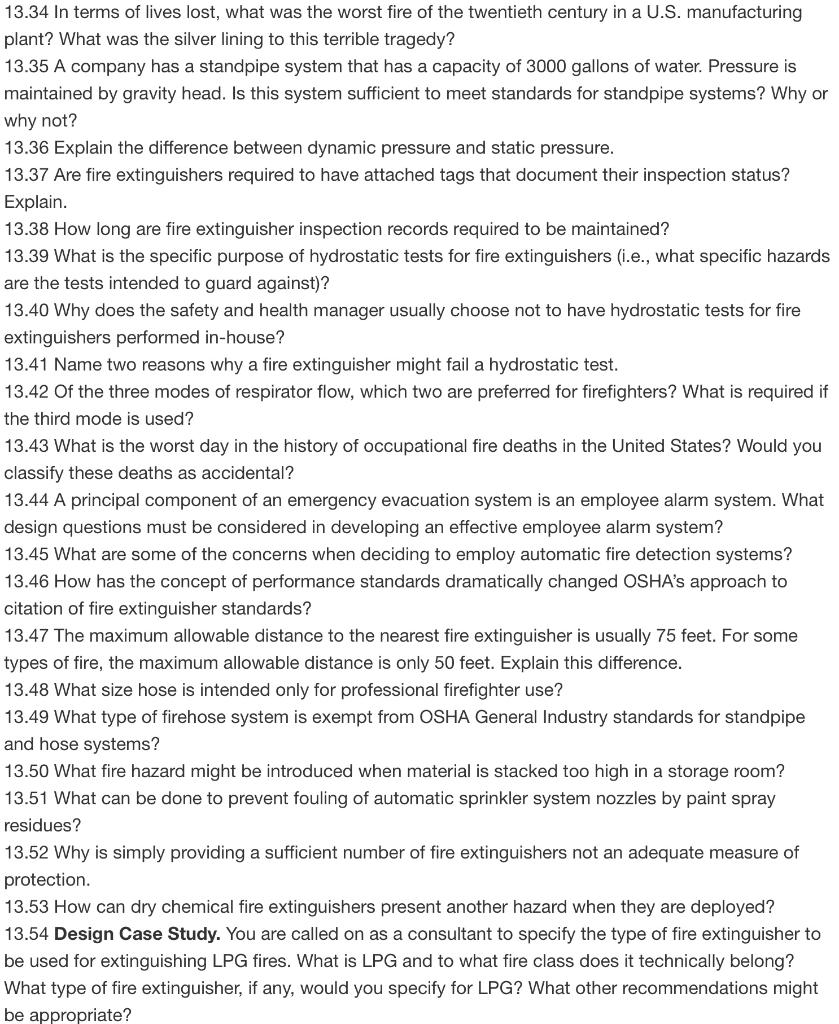Answer Questions 13.34 through 13.54

13.34 In terms of lives lost, what was the worst fire of the twentieth century in a U.S. manufacturing plant? What was the silver lining to this terrible tragedy? 13.35 A company has a standpipe system that has a capacity of 3000 gallons of water. Pressure is maintained by gravity head. Is this system sufficient to meet standards for standpipe systems? Why or Why not? 13.36 Explain the difference between dynamic pressure and static pressure. 13.37 Are fire extinguishers required to have attached tags that document their inspection status? Explain. 13.38 How long are fire extinguisher inspection records required to be maintained? 13.39 What is the specific purpose of hydrostatic tests for fire extinguishers (i.e., what specific hazards are the tests intended to guard against)? 13.40 Why does the safety and health manager usually choose not to have hydrostatic tests for fire extinguishers performed in-house? 13.41 Name two reasons why a fire extinguisher might fail a hydrostatic test. 13.42 Of the three modes of respirator flow, which two are preferred for firefighters? What is required if the third mode is used? 13.43 What is the worst day in the history of occupational fire deaths in the United States? Would you classify these deaths as accidental? 13.44 A principal component of an emergency evacuation system is an employee alarm system. What design questions must be considered in developing an effective employee alarm system? 13.45 What are some of the concerns when deciding to employ automatic fire detection systems? 13.46 How has the concept of performance standards dramatically changed OSHA's approach to citation of fire extinguisher standards? 13.47 The maximum allowable distance to the nearest fire extinguisher is usually 75 feet. For some types of fire, the maximum allowable distance is only 50 feet. Explain this difference. 13.48 What size hose is intended only for professional firefighter use? 13.49 What type of firehose system is exempt from OSHA General Industry standards for standpipe and hose systems? 13.50 What fire hazard might be introduced when material is stacked too high in a storage room? 13.51 What can be done to prevent fouling of automatic sprinkler system nozzles by paint spray residues? 13.52 Why is simply providing a sufficient number of fire extinguishers not an adequate measure of protection. 13.53 How can dry chemical fire extinguishers present another hazard when they are deployed? 13.54 Design Case Study. You are called on as a consultant to specify the type of fire extinguisher to be used for extinguishing LPG fires. What is LPG and to what fire class does it technically belong? What type of fire extinguisher, if any, would you specify for LPG? What other recommendations might be appropriate







